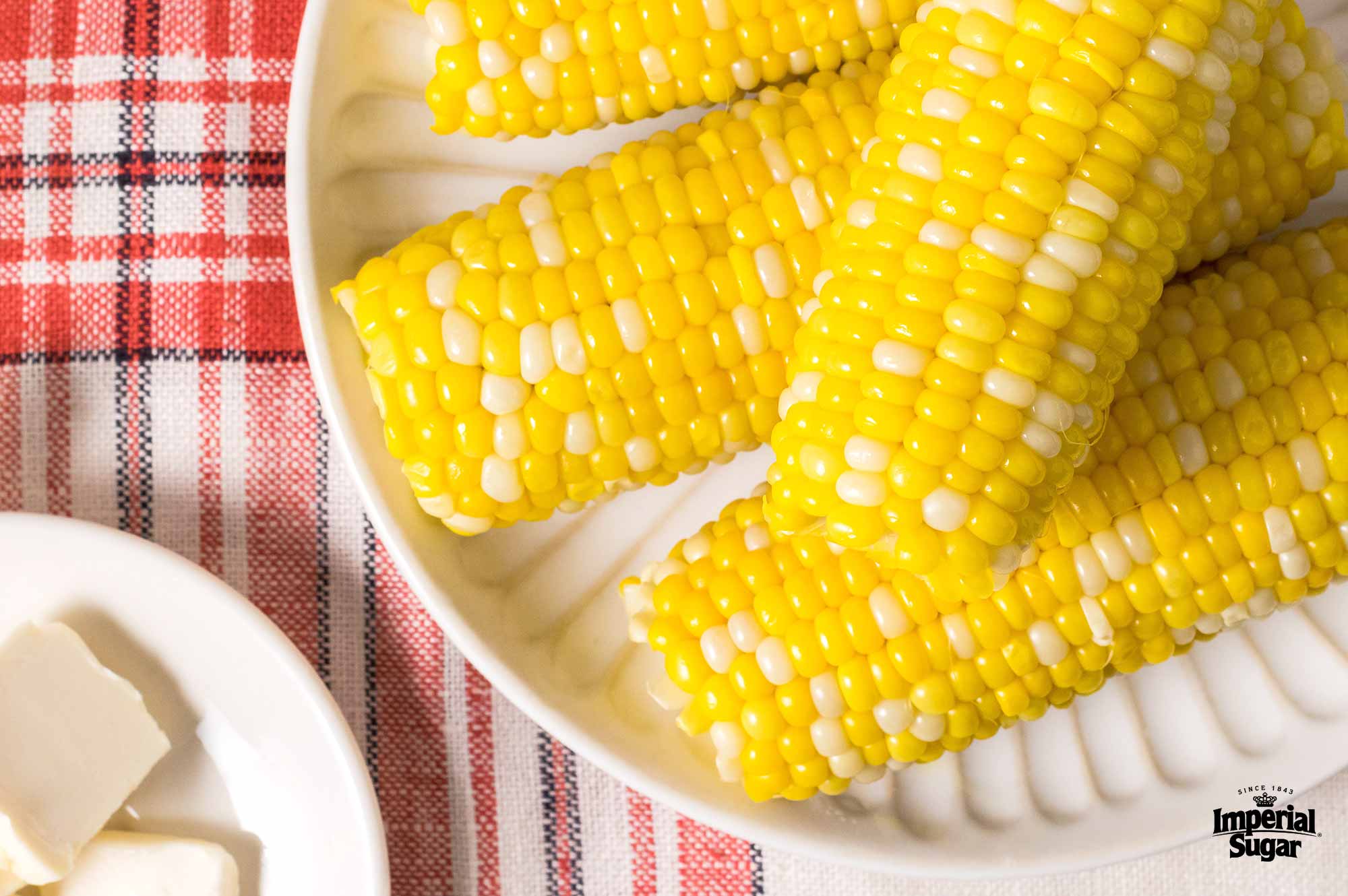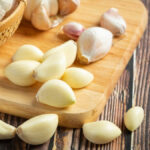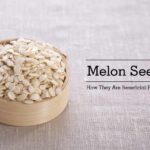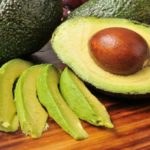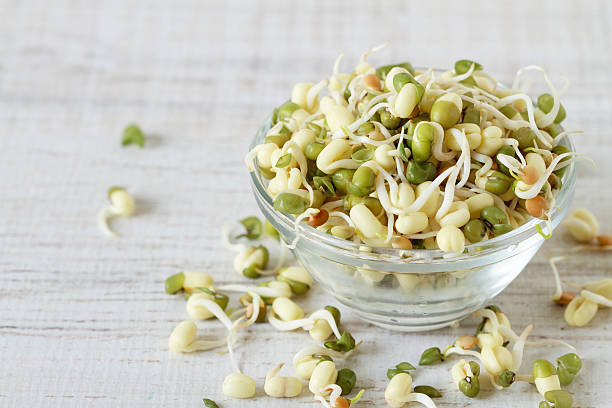Amazing Benefits of Eating Corn
Did you know that one of the benefits of eating corn is the fact that the bran that covers each corn’s kernel which is also present in sweet corn and even corn meal has the capability of reducing blood cholesterol levels?
Also note that yellow corn is the only grain that holds any significant amount of provitamin A and vitamin C. In the family of grains, it is a wonderful source of B group vitamins and also folates.
As a food for the intestine, it soothes and protects the intestinal mucosa and is well tolerated by individuals with chronic colitis and irritable bowel syndrome. These are some of the benefits of eating corn.
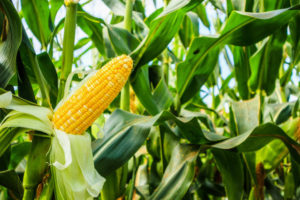
Since ancient times, all the primitive people of the American continent grew and ate corn.
In 16th century it was introduced to Europe by Spaniards and from there it spread to the entire earth.
And today, it is the third most cultivated grain in the entire universe after wheat and rice.
Other names: Sweet corn, maize
French: Maïs
Spanish: Maiz, choclo
German: Maiz
You May Like: Benefits of Sprouts and Side Effects
Corn plant seeds (‘Sea mays’ L.), a herbaceous plant of the botanical family Gramineae. Corn is originally from the continent of America and today almost half of the world’s corn production comes from the United States of America.
In United States, food scientists had already made it clear that eating corn is quite beneficial than feeding it to animals for meat production.
In essence, tender and sweet varieties of corn have been developed for human consumption, specifically.
Properties and Indications of Corn
Corn or sweet corn has about 76% of water simply because is harvested before it is ripe. This makes it contain a higher percentage of water as well as sugars which bring about it flavor and tenderness.
Sweet corn makes available 86 kcal per 100 grams which is somewhat more than potatoes (79 kcal/100 g).
Sweet Corn Composition
Per 100 grams of raw edible portion
Energy = 86.0 kcal = 358 kj
Carbohydrates = 16.3 g
Protein = 3.22 g
Fiber = 2.70 g
Vitamin A = 28.0 µg RE
Vitamin B1 = 0.200 mg
Vitamin B2 = 0.060 mg
Niacin = 2.08 mg NE
Vitamin B6 = 0.055 mg
Folate = 45.8 µg
Vitamin B12 = ___
Vitamin C = 6.80 mg
Vitamin E = 0.090 mg α-TE
Phosphorus = 89.0 mg
Calcium = 2.00 mg
Magnesium = 37.0 mg
Iron = 0.520 mg
Potassium = 270 mg
Zinc = 0.450 mg
Total Fat = 1.18 g
Saturated Fat = 0.182 g
Cholesterol = ___
Sodium = 15.0 mg
This based on % Daily Value provided by 100 grams of sweet corn
Sweet Corn Percentage Composition
Fiber = 2.70%
Carbohydrates = 16.3%
Fat = 1.18%
Protein = 3.22%
Minerals = 0.620%
Water = 76.0%
The following are the primary nutrients of sweet corn
Proteins: By weight, sweet corn contains about 3.23%, however, when it is dried, it reaches 10%.
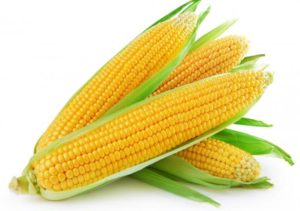
As it is, the most abundant protein in a kernel of corn is called zein and it contains all the essential amino acids, however, two are somewhat insufficient.
Corn’s protein is easily digestible but quite insufficient to meet the amino acid needs of the body by itself.
It is recommended to combine corn with legumes, sunflower seeds, for the combination will provide a complete protein.
Carbohydrates: It makes up 16.3% of its weight which are formed of starch and sugars. Corn’s kernel when it is not ripe contains more sugars while ripe, corn contains higher amount of starch. All the types of carbohydrates are easily digested and well assimilated.
Fat: In the germ particularly, it makes up about 1.18% of its weight. It is quite rich in mono and polyunsaturated fatty acids, linoleic acid in particular.
Vitamins: Sweet corn contains a significant amount of provitamin A (28 ug/100 g) while the white corn does not contains provitamin A. Sweet corn when canned loses about 25% of its provitamin A in a year of storage.
However, one of the benefits of eating corn is that it is a good source of vitamin B1 and also provides a good amount of vitamin C.
Fiber: Corn is a good source of fiber (2.7%) of soluble and insoluble types and this is the reason it is recommended in cases of irritable bowel, celiac renal disease, chronic colitis and other intestinal disorders. Note that this is also some of the benefits of eating corn.
Minerals: Corn provides a good amount of minerals such as potassium, magnesium, phosphorus and iron. The calcium content is somewhat small.
Some of the health Benefits of Eating Corn
From what we have observed above, it is therefore recommended in the following cases.
- Excess cholesterol and Fat
- Intestinal disorders
- Chronic renal diseases
- Hyperthyroidism
Excess cholesterol
As stated earlier, one of the benefits of eating corn is its ability in reducing fat and excess cholesterol. In essence, it lowers cholesterol.
This is carried out by the bran that covers the kernel of corn. This is demonstrated in a study conducted at Illinois State University (USA).
Intestinal disorders

Cornmeal, sweet corn as well as other means of preparation have shown emollient effects on the intestinal mucosa.
Again, corn contains no gluten which is why it is easily tolerated in sensitive digestive system.
Therefore, as one of the benefits of eating corn, it is recommended in the following cases:
- Intestinal dyspepsia characterized by gas, pain and fermentation
- Weaning diet for nursing infants
- Celiac disease as result of intestinal intolerance of wheat gluten
- Irritable bowel characterized by alternating between periods of diarrhea and constipation
- Chronic colitis
Chronic renal diseases
This may result in kidney failure (chronic glomerulonephritis and nephrosis). Another one among the benefits of eating corn is the fact that corn kernel have a slight diuretic effect and also provides a small amount of protein.
This makes it suitable for the diet of kidney patients.
Hyperthyroidism
There is a slight retarding effect of the corn on the thyroid gland and also on metabolism, generally.
Therefore, its consumption is quite appropriate in cases of hyperthyroidism which may have resulted from nervousness, thinness and others.
Preparation and Use
- Grits: This is refined cornmeal, less nutritious because the bran and germ have been removed
- Fresh sweet corn: Heated in water, roasted over coals and consumed from the cob
- Canned sweet corn: Canned or frozen, maintains its flavor and nutritional properties
- Cornmeal: it is quite nutritious as whole grain and readily uses in Mexico to make famous tortillas.
- Cornflakes: This is prepared by mashing and toasting corn. Some of its vitamins are lost in this process. However, industrially manufactured cornflakes are enriched with vitamins and minerals.
- Popcorn
- Cornstarch: Highly refined, defatted corn flour. It is has little nutritional value. It is used in sauces and confectionery and as a thickener in certain food products.
Health Benefits of Blueberries

A graduate of Computer Science and Information Management Technology. Diploma – Caregiving, Certificates – Dementia and Diabetes Awareness and Management. A researcher, blogger, songwriter, singer and acoustic guitarist. Born in an environment where natural talents such as healing are imparted at our natural birth. This natural talents of healing is the result of our genetic inheritance and the training from family environment.

